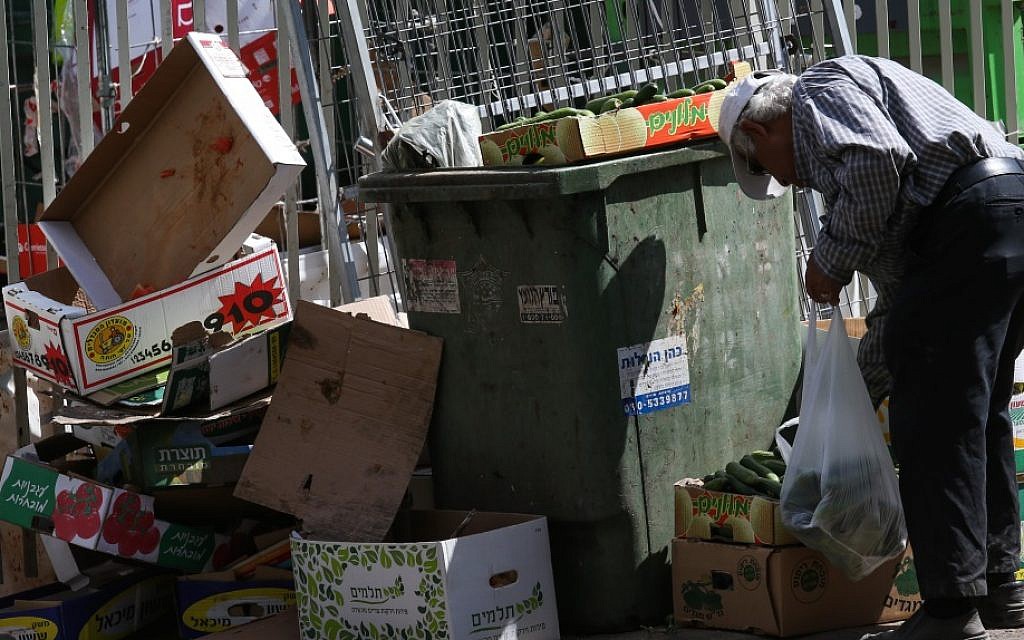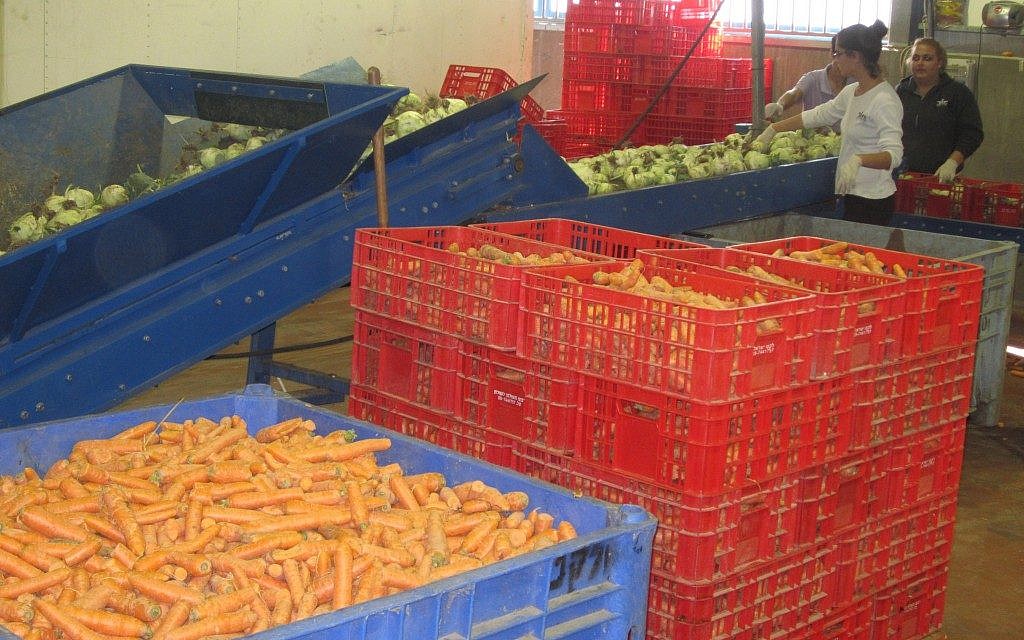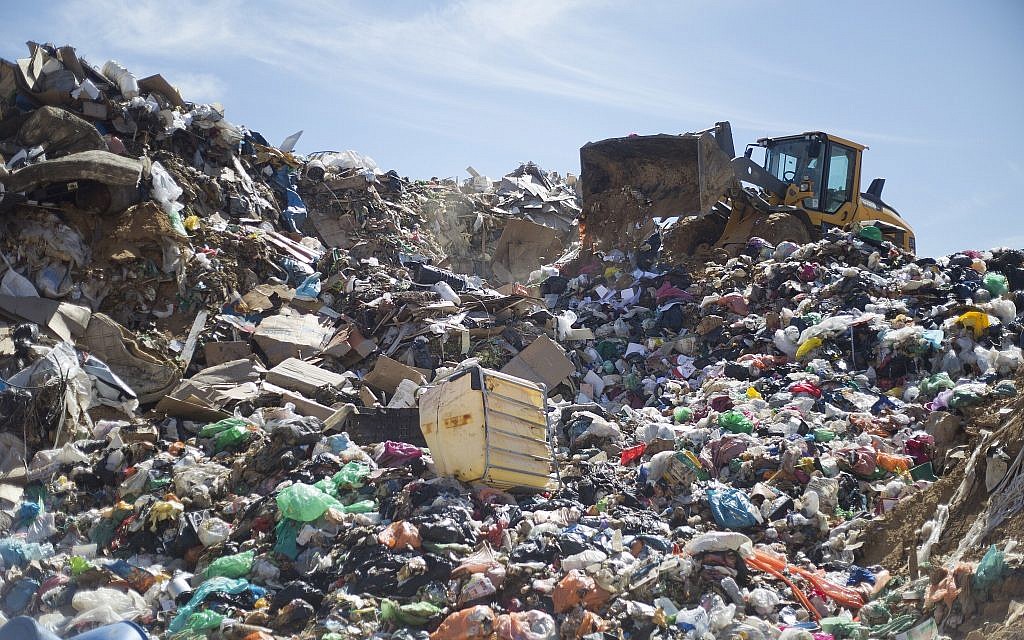International review finds Israel can do more to donate surplus food to needy
Global Food Donation Policy Atlas report recommends more tax breaks, legislative support to help put to good use some of the 2.6 million tons of food lost or wasted annually
Sue Surkes is The Times of Israel's environment reporter.
An international review of different countries’ laws on food donations has come up with a list of recommendations for Israel that includes setting a national 50% food waste reduction goal by 2030, legislating for surplus food to be donated rather than recycled (composted) wherever possible, and imposing a tax on food remains sent to landfill.
The research also calls for public education campaigns to explain the laws that already exist on food donations and food safety, and to clarify the difference between two kinds of expiration date labels on food products.
At a ceremony to launch the report held Tuesday at the Leket food rescue organization’s logistics center in central Israel, Environmental Protection Minister Idit Silman said her ministry would set up an inter-ministerial team that would submit to the government a national plan to reduce food waste.
The first-of-its-kind study, carried out jointly by the Harvard Law School Food Law and Policy Clinic and The Global FoodBanking Network, has resulted in a Global Food Donation Policy Atlas which maps laws and policies in the 23 countries, plus the European Union, that have participated so far.
Globally, an estimated 1.3 billion tons of food is lost or wasted annually, according to the study’s authors. At the same time, between 720 and 811 million people suffer from hunger worldwide.
Israel fares well internationally when it comes to food affordability, availability and safety, the study finds.
But with 19% of the population facing food insecurity, it falls below the global average. The report does not provide that average.
Food insecurity has been defined as the inability to ensure a constant supply of food that contains all the nutritional elements necessary for proper development and health.

While it can lead to malnutrition, it is not the same thing. Indeed, it is a prime cause of obesity and is closely linked to disease and increased vulnerability to illnesses.
In Israel, 37% of domestic food production is either lost or wasted, totaling nearly 2.6 million tons of food annually, the report says, adding that around half of this could be recovered to feed people who are food insecure. Leket and the Environmental Protection Ministry estimate the wasted food to be worth NIS 23.1 billion ($6.4 billion).
Israel offers liability protections for food donations through the 2018 Food Donation Encouragement Law, which grants civil and criminal liability protection for food donors and food donation organizations (including their employees and volunteers), provided all relevant laws are followed and there is no negligence.
But more people need to understand these protections if more food is to be donated, the report says, advocating awareness-raising campaigns.
The main law dealing with food safety in Israel is the Public Health (Food) Protection Law. This authorizes the Health Ministry to introduce regulations that will guarantee food safety across the value chain.
The law does relate to surplus food distribution, for example by exempting distributors from the need for transportation and storage licenses.
But, says the research, more detailed guidance from the ministry is needed.

Another helpful step would be to provide clarity around food labels, the report goes on.
Israel uses two kinds of labels. The “use by” stamp relates to the safety of a food product that could be spoiled after the date and harm human health.
By contrast, “best before” dates are employed for foods that the manufacturer determines are not sensitive to expiration dates and continue to be safe to eat, although they may start losing taste or texture. The law allows these foods to be donated, provided they have written authorization from the manufacturer.
But, says the report, most people don’t know to differentiate between the two types of labels. If they did — and here an information campaign would also help — less food would be dumped and more would be given away, the authors write.
In Israel, monetary and in-kind donations to certified public institutions can claim a tax credit based on the value of the contribution —- 35% of the value of the donation for individuals, or 23% of the donation value for corporations.
In a single tax year, the tax credit cannot exceed NIS 10,019,808 ($2,749,786) or 30% of the taxpayer’s chargeable income, whichever is lower.
The authors recommend that the tax credit cap be raised and call on the government to provide grants for food donation infrastructure and activities.

Food leftovers and garden prunings account for around 40% of all municipal trash in Israel by weight and emit global warming gases when sent to decompose in landfill sites.
The food security report recommends that the Israeli government design policies obliging companies with excess food to donate it, or limiting their ability to send food to landfills.










